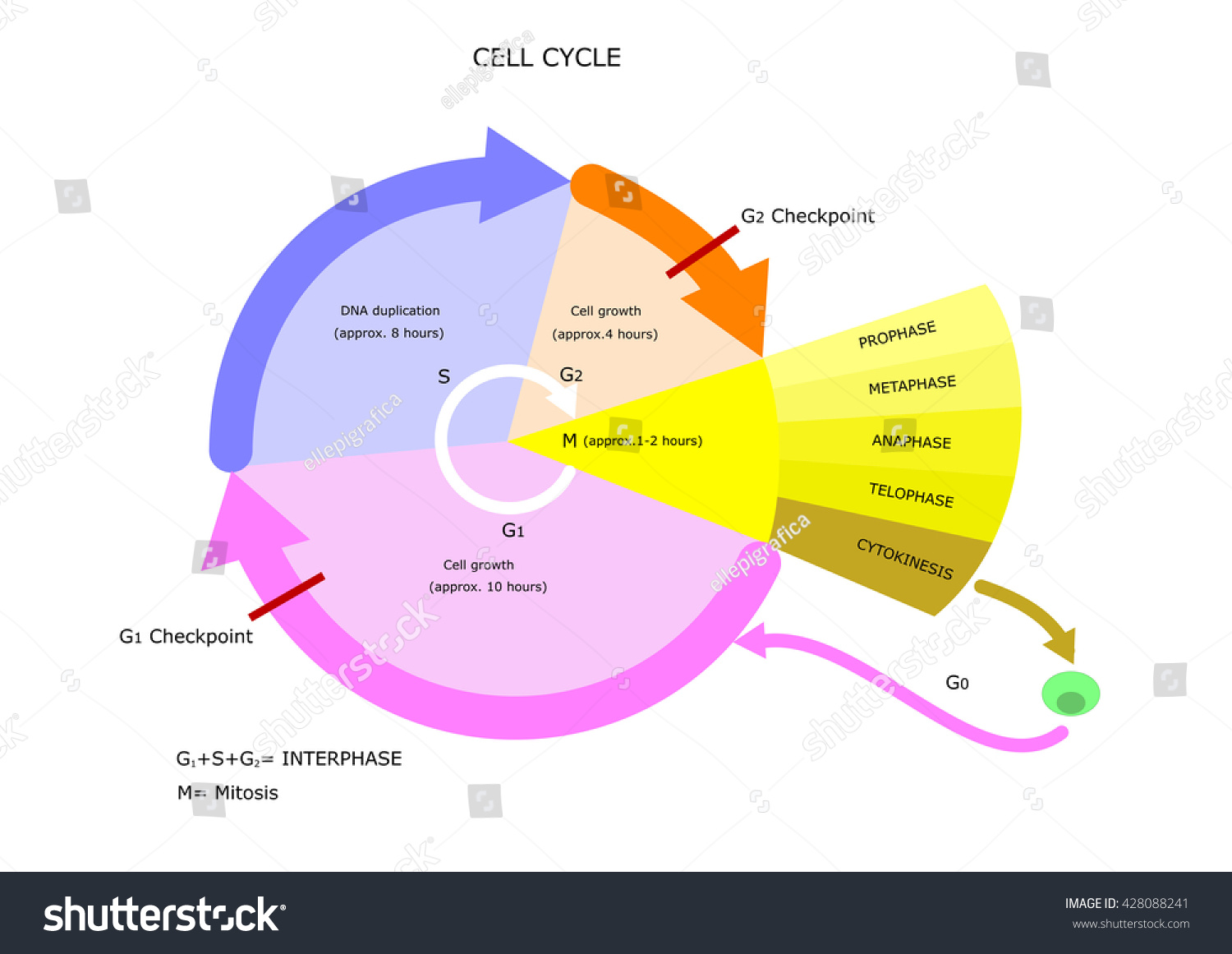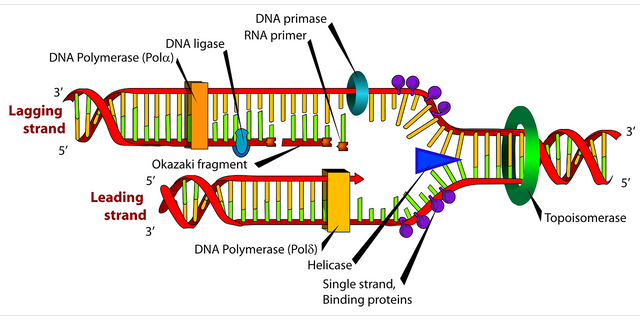Cell cycle: An Overview of DNA replication
Did you know that all cells are synthesized by the division of already existing cells and that the continuity of life depends on this division? Well now you know. The production of new cells happen during the cell cycle.
The cell cycle is defined as the entire series of events that happen from the end of one nuclear division(production of new daughter cells) to the beginning of the next nuclear division.
In a typical eukaryotic cell's cycle, there are some important phases it undergoes which includes;
- G1 phase: This phase is called the first gap phase since no DNA synthesis occurs here. During this phase RNA, proteins and membranes needed for the growth of the nucleus and cytoplasm of the new daughter cells are synthesized.
- S phase: This is where DNA replication happens and also the synthesis of histone proteins.
- G2 phase: This is the second gap phase, the synthesis of RNA and proteins continue since they are needed for cell growth
- Mitosis: Mitosis occurs in somatic cells and is meant for the multiplication of cell numbers and it is very important for the growth of an individual from zygote to adult stage. Mitosis is important for replacing old cells lost to natural friction and also for wound healing.
A very important process during the cell cycle is during the S phase in which the new DNA for the daughter cells are synthesized.
This process is referred to as DNA replication and we'll now dive into the intricacies of DNA replication:
DNA replication comprises of three steps;
Initiation,
Elongation,
Termination.
Initiation: During initiation, the initiator proteins (for example dnaA in E. Coli) binds to the DNA duplex, causing the duplex to unwind and forming single strands of DNA in the process. Once this unwinding occurs, SSB proteins (single stranded binding proteins) bind to each single strand and stabilizes each of the strands.
Elongation: Here, the RNA primers bind to each of the stabilized single strands, the replication then proceeds in the 5' to 3' direction. This 5' to 3' movement occurs one the "leading strand" while on the "lagging strand" movement is in the 3' to 5' direction. In the process of this movement a replication fork is formed.
The synthesis of DNA on the leading strand is continuous while on the lagging strand it is discontinuous and this is because the replication movement is originally in the 5' to 3' prime direction. So for replication to occur on the "lagging strand", it is replicated in fragments and uses numerous primers. These fragments are referred to as okazaki fragments. After the strand has been replicated, the primers are excised by the DNA polymerase, DNA ligase now forms phosphodiester bonds that links the okazaki fragments.
An illustration of replication
Termination: In eukaryotes, termination occurs by termination sequences called telomeres. Telomerases help with the problem of DNA shortening becuase each step of replication shortens the DNA. Telomeres are short repeats of "G" base found at the end of linear chromosome. They form a single stranded cap around the chromosome ends to stop them from being degraded. Old cells with shortened telomeres usually undergo apoptosis.
There's an hypothesis that telomerase is over-expressed in cancer cells, hence, they do not undergo cell death.
And that's all about DNA replication and we should also realize that replication is important biologically in the sense that without replication the cells will keep being divided into half till there are probably no more cells to divide.
Sources
Cell biology, Genetics, Molecular biology, Evolution and Ecology by S. Chand
Thanks for stopping by!!!. Comments and questions are very welcome☺
.jpg)


Good one dear.
Makes me remember my 100level days when i had to cram all those stuffs.
Kudos!!
Thank you 😇
Congratulations! This post has been upvoted from the communal account, @minnowsupport, by fololade from the Minnow Support Project. It's a witness project run by aggroed, ausbitbank, teamsteem, theprophet0, someguy123, neoxian, followbtcnews, and netuoso. The goal is to help Steemit grow by supporting Minnows. Please find us at the Peace, Abundance, and Liberty Network (PALnet) Discord Channel. It's a completely public and open space to all members of the Steemit community who voluntarily choose to be there.
If you would like to delegate to the Minnow Support Project you can do so by clicking on the following links: 50SP, 100SP, 250SP, 500SP, 1000SP, 5000SP.
Be sure to leave at least 50SP undelegated on your account.
Your Post Has Been Featured on @Resteemable!
Feature any Steemit post using resteemit.com!
How It Works:
1. Take Any Steemit URL
2. Erase
https://3. Type
reGet Featured Instantly � Featured Posts are voted every 2.4hrs
Join the Curation Team Here | Vote Resteemable for Witness